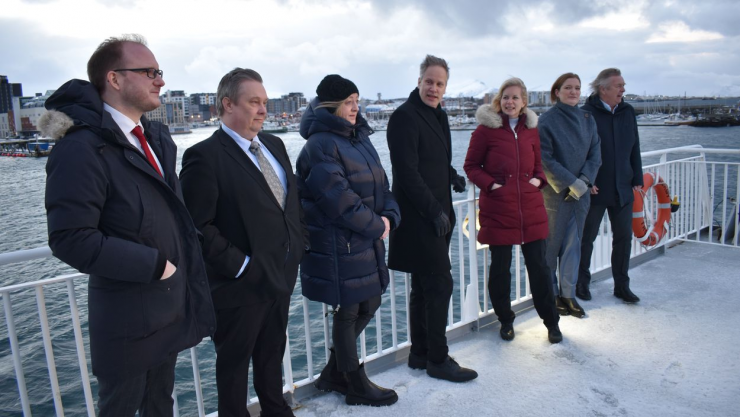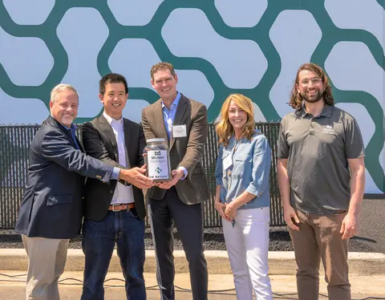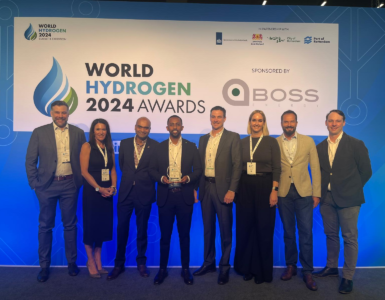Torghatten Nord, Signed hydrogen ferry contract: – Facilitates hydrogen production on a relatively large scale.
Jon-Ivar Nygård, Transport Minister during the signing session for the new hydrogen ferry contract – on board today’s ferry, MF Værøy.
This is a big day for the Ferry Norway, climate Norway and North Norway.
Bodø – Røst – Værøy – Moskenes is Norway’s longest national road ferry connection. Last autumn, Torghatten Nord was set to operate the ferries from 2025 and 15 years ahead. The company also operates today’s LNG-powered ferries.
Two of the ferries will run 85 per cent on hydrogen from 2025. In addition, there shall be reserve vessels to be operated on biogas or biodiesel.
🔥 What about we co-host a webinar? Let's educate, captivate, and convert the hydrogen economy!
Hydrogen Central is the global go-to online magazine for the hydrogen economy, we can help you host impactful webinars that become a global reference on your topic and are an evergreen source of leads. Click here to request more details
Hydrogen Capital
At the signing were also the mayors from Bodø and Røst, both of whom highlighted the ferries as important to the region.
Elisabeth Mikalsen, Røst mayor and leader of the Lofoten Council.
It is the very lifeblood of our society that will be renewed.
Passenger capacity will be increased by 60 per cent and car capacity by 40 per cent when the new ferries come into operation.
Large-scale production
Torkild Torkildsen, CEO of the shipping company Torghatten Nord, says that the contract will have major ripple effects for the region, the maritime industry and the hydrogen industry.
Torkild Torkildsen:
We have been given responsibility for a world-class project.
“I’m tempted to say the best world class. This is pioneering work that requires collaboration with several partners. In particular, we want to work with partners locally. There are many good forces in the Lofoten region,” he says, adding:
“Bodø can become a hydrogen capital in Norway.”
The ferries will bunker between five and six tonnes of hydrogen every day.
Anders Sæternes, department director for ferries at the Norwegian Public Roads Administration.
This volume is of such a nature that it also has an impact on those who will produce hydrogen in the future.
The new ferries will reduce CO2-emissions in vestfjordsambandet by 26,500 tonnes annually compared to today’s ferries, which are operated on natural gas (LNG). This corresponds to the annual emissions from 13,000 diesel cars.
Torghatten Nord has, in collaboration with Norwegian Ship Design in Førde, developed an interesting and future-oriented vessel design for the new hydrogen ferries, according to the Norwegian Public Roads Administration.
Signed hydrogen ferry contract: – Facilitates hydrogen production on a relatively large scale, January 25, 2022








